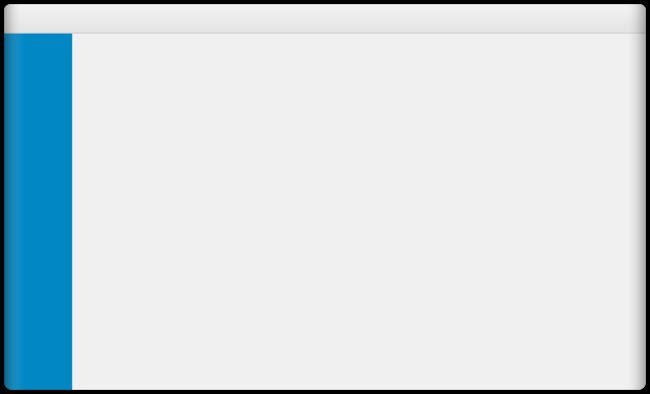- 渗透测试之webshell 蚁剑 流量分析 特性分析 抓包分析
浩浩测试一下
网络安全安全系统安全web安全安全架构网络攻击模型
目录蚁剑是什么特性简介:蚁剑流量特征两大特征流量分析分析UserAgent数据内容解码分析总结蚁剑是什么蚁剑(AntSword)是一款开源的跨平台WebShell管理工具特性简介:AntSword(蚁剑)是一款开源的网络安全工具,常用于网络渗透测试和攻击。它可以远程连接并控制被攻击计算机,执行命令、上传下载文件等操作。蚁剑与网站进行数据交互的过程中发送的数据是经过编码器编码后再发送支持的编码方式有
- java快速入门之判断与循环
天启互联网工作室
java开发语言
一、流程控制语句在一个程序执行的过程中,各条语句的执行顺序对程序的结果是有直接影响的。所以,我们必须清楚每条语句的执行流程。而且,很多时候要通过控制语句的执行顺序来实现我们想要的功能。1.1流程控制语句分顺序结构判断和选择结构(if,switch)循环结构(for,while,do…while)二、判断语句:if语句2.1if语句格式1格式1:if(关系表达式){语句体;}执行流程:①首先计算关系
- 【RocketMQ 消息中间件】RocketMQ篇之-消息存储 为什么性能高 CommitLog 刷盘机制 同步 异步
java中间件消息队列
RocketMQ篇之-消息存储RocketMQ作为一款分布式消息中间件,高可靠性是其最重要的特性之一。所以需要将消息进行持久化存储,以保证消息不丢失。RocketMQ的消息存储是RocketMQ的核心组件之一,负责消息的存储和传输。RocketMQ的消息存储主要包括CommitLog、ConsumeQueue、IndexFile、Checkpoint等几个部分。(前置)消息存储交互流程生产者发送消
- ofa.js:无需打包的MVVM框架,前端开发的轻量之选
前端
近年来,前端开发领域涌现了许多优秀的框架,如React、Vue和Angular,它们极大地提升了开发效率和代码可维护性。然而,随着项目复杂度的增加,这些框架的学习曲线和构建工具链的复杂性也让许多开发者感到头疼。在这样的背景下,ofa.js应运而生,它号称“无需打包的MVVM框架”,试图为前端开发带来一种全新的体验。那么,ofa.js究竟有何独特之处?它与其他MVVM框架相比又有哪些优势?本文将为你
- BOE(京东方)"向新2025”年终媒体智享会落地深圳 "屏”实力赋能产业创新发展
数据库
12月27日,BOE(京东方)“向新2025”年终媒体智享会的收官之站在创新之都深圳圆满举行,为这场为期两周、横跨三地的年度科技盛会画上了完美句号。活动期间,全面回顾了BOE(京东方)2024年在多个关键领域取得的卓越成绩,深入剖析其在六大维度构建的“向新”发展格局,精彩呈现了以“屏”为核心搭建起的技术引领、伙伴赋能以及绿色发展等平台,全方位赋能全球生态合作伙伴,充分彰显BOE(京东方)作为全球领
- 【YOLOv8改进】 YOLOv8 更换骨干网络之 GhostNet :通过低成本操作获得更多特征 (论文笔记+引入代码)
YOLO大师
YOLO论文阅读
YOLO目标检测创新改进与实战案例专栏专栏目录:YOLO有效改进系列及项目实战目录包含卷积,主干注意力,检测头等创新机制以及各种目标检测分割项目实战案例专栏链接:YOLO基础解析+创新改进+实战案例介绍摘要在嵌入式设备上部署卷积神经网络(CNNs)由于有限的内存和计算资源而变得困难。特征图中的冗余是那些成功的CNNs的一个重要特性,但在神经架构设计中很少被研究。本文提出了一种新颖的Ghost模块,
- 论文阅读:Deep Bilateral Learning for Real-Time Image Enhancement-google-hdrnet-slicing
SetMaker
论文阅读
项目地址:https://gitcode.com/google/hdrnethdrnet作为超分领域的经典文章,由google提出主要用来用轻量化的方法来实现高分辨率的图像生成,hdrnet结合cnn可以让更高分辨率的图像部署在板端。如图所示,原始图像比如4k图像,首先分为两个主要模块:grid和guide。grid就是对应图上面的那一条特征提取网络,具体来说,原始图像经过下采样之后,默认256分
- MySql场景面试题:满意度调查分组去除最高最低求平均分
码到三十五
mysql高手mysqlspringbootspringcloud分布式数据分析数据挖掘
❃博主首页:「码到三十五」,同名公众号:「码到三十五」,wx号:「liwu0213」☠博主专栏:♝博主的话:搬的每块砖,皆为峰峦之基;公众号搜索「码到三十五」关注这个爱发技术干货的coder,一起筑基场景描述我们有一个员工满意度调查系统,数据库中有一张表:survey_scores表:存储员工对公司的满意度打分。表结构如下:--调查打分表CREATETABLEsurvey_scores(score
- Mybatis源码-加载映射文件与动态代理
大家好,我是半夏之沫一名金融科技领域的JAVA系统研发我希望将自己工作和学习中的经验以最朴实,最严谨的方式分享给大家,共同进步写作不易,期待大家的关注和点赞关注微信公众号【技术探界】前言本篇文章将分析Mybatis在配置文件加载的过程中,如何解析映射文件中的SQL语句以及每条SQL语句如何与映射接口的方法进行关联。在看该部分源码之前,需要具备JDK动态代理的相关知识,如果该部分不是很了解,可以先看
- 2017-SIGGRAPH-Google,MIT-(HDRNet)Deep Bilateral Learning for Real-Time Image Enhancements
WX Chen
HDR技术深度学习神经网络机器学习
双边网格本质上是一个可以保存边缘信息的3维的数据结构。对于一张2维图片,在2维空间中增加了一维代表像素的强度slice操作(上采样)BilateralGuidedUpsampling这篇文章用双边网格实现图像的操作算子的加速。算法的核心思想是将一幅高分辨率的图像通过下采样转换成一个双边网格,在双边网格中每个格子就是一个图像的仿射变换算子,它的原理是在空间与值域相近的区域内,相似输入图像的亮度经算子
- 2024年美国App Store下载榜单:AI代码生成器助力Temu蝉联冠军背后的秘密
前端
2024年美国区AppStore下载榜单揭晓,Temu再次蝉联免费应用下载榜冠军,这已经是它连续两年取得的辉煌成就!紧随其后的是Threads和TikTok,而ChatGPT更是以黑马之姿超越Google,位列第四。这份榜单不仅反映了美国用户的应用偏好,更折射出2024年移动应用市场的几大关键趋势。本文将深入分析Temu、Threads、ChatGPT等热门应用的成功秘诀,并探讨未来AppStor
- 数值存储(一)-CPU大端和小端模式详解
poclist
osdev
大端与小端在嵌入式开发中,大端(Big-endian)和小端(Little-endian)是一个很重要的概念。MSB与LSB最高有效位(MSB)指二进制中最高值的比特。在16比特的数字音频中,其第1个比特便对16bit的字的数值有最大的影响。例如,在十进制的15,389这一数字中,相当于万数那1行(1)的数字便对数值的影响最大。比较与之相反的“最低有效位”(LSB)。LSB(LeastSignif
- 使用 `du` 命令可以查看根目录下每个子目录占用的磁盘空间大小
abments
linux常用命令linux
使用du命令可以查看根目录下每个子目录占用的磁盘空间大小。查看根目录下子目录大小的命令sudodu-sh/*解释:du:显示文件和目录的磁盘使用情况。-s:只显示每个目录的总大小(不递归显示子目录)。-h:以人类可读的格式显示大小(如KB、MB、GB)。/*:表示根目录下的所有子目录和文件。输出示例:4.0K/bin12M/boot0/dev1.5G/etc32G/home8.0K/lib...每
- PyCharm安装PyQt5及工具详细教程
JustLikeRun
pycharmqtidepyqt
PyCharm安装PyQt5及工具详细教程PyCharm是一款功能强大的Python集成开发环境(IDE),而PyQt5是一个用于创建GUI应用程序的流行Python库。在本教程中,我将指导您如何在PyCharm中安装PyQt5及其相关工具,并提供相应的源代码示例。步骤1:安装PyCharm首先,您需要下载并安装PyCharm。您可以从JetBrains官方网站(https://www.jetbr
- Python从0到100(七十三):Python OpenCV-OpenCV实现手势虚拟拖拽
是Dream呀
pythonopencv开发语言
前言:零基础学Python:Python从0到100最新最全教程。想做这件事情很久了,这次我更新了自己所写过的所有博客,汇集成了Python从0到100,共一百节课,帮助大家一个月时间里从零基础到学习Python基础语法、Python爬虫、Web开发、计算机视觉、机器学习、神经网络以及人工智能相关知识,成为学习学习和学业的先行者!欢迎大家订阅专栏:零基础学Python:Python从0到100最新
- 华为OD机试E卷 --第k个排列 --24年OD统一考试(Java & JS & Python & C & C++)
飞码创造者
最新华为OD机试题库2024华为odjavajavascriptc语言python
文章目录题目描述输入描述输出描述用例题目解析JS算法源码java算法源码python算法源码c算法源码c++算法源码题目描述给定参数n,从1到n会有n个整数:1,2,3,…,n,这n个数字共有nl种排列。按大小顺序升序列出所有排列的情况,并——标记,当n=3时,所有排列如下:“123"“132”“213”“231"“312"“321”给定n和k,返回第k个排列。输入描述输入两行,第一行为n,第二行
- FFmpeg 元数据
yerennuo
ffmpegffmpeg
文章目录元数据代码实例,查看元数据元数据在处理音视频文件时,了解其元数据信息是非常重要的。元数据是描述文件内容和属性的数据,包括了诸如标题、作者、时长、分辨率等信息。使用ACDictonaryAPI,可以查看元数据或者将元数据写入到AVFormatContext,AVStream,AVChapter和AVProgram结构体中,元数据保存在它们Metadata字段中。元数据是由一个键值对组成的。与
- QtDelegate委托的使用
Mr.攻城狮
QT
概念:不同于模型-视图-控制器模式,模型/视图设计不包括用于管理与用户交互的一个完全独立的组件。一般情况,视图负责将模型数据呈现给用户以及处理用户输入。为了输入更加具有灵活性,则由委托来执行交互。这些组件提供输入功能,且在一些视图中还负责渲染个别项目。控制委托的标准接口在QAbstractItemDelegate类中定义。简单基础部件的委托可以继承QItemDelegate,并使用这些函数的默认实
- gradle linux配置环境变量配置,Mac OS环境变量配置(Android Studio之Gradle)
MatrixMage
gradlelinux配置环境变量配置
以gradle环境变量配置为例:AndroidStudio自带的gradle路径为:/Applications/Android\Studio.app/Contents/gradle/gradle-2.8/bin1.打开终端2.输入:vim~/.bash_profile3.进入编辑模式4.在文本末尾添加如下信息exportGRADLE_HOME=/Applications/Android\Studi
- python正则表达式re关于数字、字母、特殊字符、汉字的匹配方式
乙龙
python开发语言
在Python中,正则表达式是通过re模块来实现的。正则表达式是一种强大的文本处理工具,用于匹配、搜索、替换或分割字符串。以下是一些基本的正则表达式模式,用于筛选不同类型的字符:数字(\d):匹配任意数字(0-9)。示例:\d可以匹配“123”中的每个‘1’,‘2’,‘3’。字母([a-zA-Z]):匹配任意大小写的英文字母。示例:[a-zA-Z]可以匹配“HelloWorld”中的每个‘H’,‘
- 【shell脚本练习——判断文件是否存在、批量创建有规律用户并设置密码、判断文件大小并更改路径位置】
怎么昵称都被占用啊
练习RHCElinux运维
shell脚本练习练习要求:练习一:判断文件是否存在练习二:批量创建有规律用户并设置密码随机字符部分内容解释:练习三:判断文件大小并更改路径位置练习要求:shell脚本写出检测/tmp/size.log文件如果存在显示它的内容,不存在则创建一个文件将创建时间写入写一个shell脚本,实现批量添加20个用户,用户名为user01-20,密码为user后面跟5个随机字符编写个shell脚本将/usr/
- 【音视频之SDL2】一篇搞懂纹理与渲染
人才程序员
音视频基础大合集音视频cc++SDL2计算机视觉视频编解码实时音视频
文章目录前言SDL2的纹理与渲染什么是纹理?什么是渲染?比较SDL_SurfaceSDL_Texture纹理与渲染的关系使用纹理与渲染绘制一个BMP图片使用纹理与渲染的流程SDL_CreateRenderer作用函数原型参数返回值SDL_CreateTextureFromSurface作用函数原型参数返回值SDL_UpdateTexture作用函数原型参数返回值何时调用它SDL_RenderCop
- ACNet:深度学习中的自适应卷积网络新星
郎轶诺
ACNet:深度学习中的自适应卷积网络新星项目地址:https://gitcode.com/gh_mirrors/ac/ACNet在深度学习领域,卷积神经网络(CNN)一直是图像处理和计算机视觉任务的核心技术。然而,传统的固定大小的卷积核无法灵活适应不同区域的信息密度。针对这一问题,ACNet(AdaptiveConvolutionNetwork)项目应运而生,它引入了一种新型的自适应卷积层,旨在
- 工作中常用springboot启动后执行的方法
begei
springbootjava后端
前言:工作中难免会遇到一些,程序启动之后需要提前执行的需求。例如:初始化缓存:在启动时加载必要的缓存数据。定时任务创建或启动:程序启动后创建或启动定时任务。程序启动完成通知:程序启动完成后通过邮件、短信等方式通知运维人员。外部系统同步:启动后与外部系统同步数据。下面介绍几种常见方式:1.使用@PostConstruct注解:使用@PostConstruct注解可以在Spring容器初始化bean之
- 与机器学习的邂逅--自适应神经网络结构的深度解析
想成为高手499
机器学习与人工智能机器学习神经网络人工智能
引言随着人工智能的发展,神经网络已成为许多应用领域的重要工具。自适应神经网络(AdaptiveNeuralNetworks,ANN)因其出色的学习能力和灵活性,逐渐成为研究的热点。本文将详细探讨自适应神经网络的基本概念、工作原理、关键技术、C++实现示例及其应用案例,最后展望未来的发展趋势。自适应神经网络的基本概念什么是自适应神经网络?自适应神经网络是一种能够根据输入数据的变化和环境的动态特性自动
- 自适应神经网络架构:原理解析与代码示例
chian-ocean
机器学习神经网络人工智能深度学习
个人主页:chian-ocean文章专栏自适应神经网络结构:深入探讨与代码实现1.引言随着深度学习的不断发展,传统神经网络模型在处理复杂任务时的局限性逐渐显现。固定的网络结构和参数对于动态变化的环境和多样化的数据往往难以适应,导致了过拟合或欠拟合的问题。自适应神经网络(AdaptiveNeuralNetworks,ANN)为此提供了一种新的解决方案,它可以根据数据特征和训练情况自动调整网络结构,从
- python之openpyxl模块
weixin_34248849
python数据结构与算法测试
一.Python操作EXCEL库的简介1.1Python官方库操作excelPython官方库一般使用xlrd库来读取Excel文件,使用xlwt库来生成Excel文件,使用xlutils库复制和修改Excel文件,这三个库只支持到Excel2003。1.2第三方库openpyxl介绍第三方库openpyxl(可读写excel表),专门处理Excel2007及以上版本产生的xlsx文件,xls和x
- 【C++算法笔记】最基础篇------高精度算法
孙小健的资料站
算法学习笔记c++算法笔记
个人笔记:只提供学习代码和其步骤思路,仅供参考学习,已提前在相关编译器中提前运行并保证代码运行。为什么要用高精度算法:longlong的存储大小为9*10^19,即超过20位的数字将无法使用基本数据类型存储和计算,所以我们要使用其他方法存储设计。涉及基础知识:基本输入输出,字符串及数组的基本运用基础步骤:1.对字符串s1,s2进行承接2.将a1与a2相加的和存入a33.从左向右进位并出现逆序#in
- 一款开源免费的数据可视化大屏 JimuBI,低代码与 AI 结合产品
简介JimuBI是一个JAVA语言的低代码数据可视化大屏BI产品,将大屏、仪表盘、移动面板、图表或页面元素封装为基础组件,无需编写代码即可完成业务需求。这是JeecgBoot团队出品的另外一款报表产品,积木报表已经成为业内报表首先,预测该大屏即将覆盖全行业。酷炫大屏轻松设计,通过拖拽完成大屏设计,80多种组件及20多种边框装饰满足您的设计需求。智能仪表盘简单易用,拖拽式操作自由布局,页面自适应;支
- 为AI聊天工具添加一个知识系统 之54 为事务处理 设计 基于DDD的一个 AI操作系统 来处理维度
一水鉴天
人工语言软件智能智能制造大数据开发语言
本文要点要点Architecture程序它被设计为一个双面神结构的控制器,它的两侧一侧编译执行另一侧解释执行,自已则是一个翻译器--通过提供两个不同取向之间的结构映射的显示器(带图形用户接口GUI和命令行接口CLI两种接口)。一个Architecture模型(表面模型接口类)一个Architecture模型采用“本”“迹”二分法,对应一个html模板。该模板中提供三个动态区划>>>代表html占位
- 矩阵求逆(JAVA)初等行变换
qiuwanchi
矩阵求逆(JAVA)
package gaodai.matrix;
import gaodai.determinant.DeterminantCalculation;
import java.util.ArrayList;
import java.util.List;
import java.util.Scanner;
/**
* 矩阵求逆(初等行变换)
* @author 邱万迟
*
- JDK timer
antlove
javajdkschedulecodetimer
1.java.util.Timer.schedule(TimerTask task, long delay):多长时间(毫秒)后执行任务
2.java.util.Timer.schedule(TimerTask task, Date time):设定某个时间执行任务
3.java.util.Timer.schedule(TimerTask task, long delay,longperiod
- JVM调优总结 -Xms -Xmx -Xmn -Xss
coder_xpf
jvm应用服务器
堆大小设置JVM 中最大堆大小有三方面限制:相关操作系统的数据模型(32-bt还是64-bit)限制;系统的可用虚拟内存限制;系统的可用物理内存限制。32位系统下,一般限制在1.5G~2G;64为操作系统对内存无限制。我在Windows Server 2003 系统,3.5G物理内存,JDK5.0下测试,最大可设置为1478m。
典型设置:
java -Xmx
- JDBC连接数据库
Array_06
jdbc
package Util;
import java.sql.Connection;
import java.sql.DriverManager;
import java.sql.ResultSet;
import java.sql.SQLException;
import java.sql.Statement;
public class JDBCUtil {
//完
- Unsupported major.minor version 51.0(jdk版本错误)
oloz
java
java.lang.UnsupportedClassVersionError: cn/support/cache/CacheType : Unsupported major.minor version 51.0 (unable to load class cn.support.cache.CacheType)
at org.apache.catalina.loader.WebappClassL
- 用多个线程处理1个List集合
362217990
多线程threadlist集合
昨天发了一个提问,启动5个线程将一个List中的内容,然后将5个线程的内容拼接起来,由于时间比较急迫,自己就写了一个Demo,希望对菜鸟有参考意义。。
import java.util.ArrayList;
import java.util.List;
import java.util.concurrent.CountDownLatch;
public c
- JSP简单访问数据库
香水浓
sqlmysqljsp
学习使用javaBean,代码很烂,仅为留个脚印
public class DBHelper {
private String driverName;
private String url;
private String user;
private String password;
private Connection connection;
privat
- Flex4中使用组件添加柱状图、饼状图等图表
AdyZhang
Flex
1.添加一个最简单的柱状图
? 1 2 3 4 5 6 7 8 9 10 11 12 13 14 15 16 17 18 19 20 21 22 23 24 25 26 27 28
<?xml version=
"1.0"&n
- Android 5.0 - ProgressBar 进度条无法展示到按钮的前面
aijuans
android
在低于SDK < 21 的版本中,ProgressBar 可以展示到按钮前面,并且为之在按钮的中间,但是切换到android 5.0后进度条ProgressBar 展示顺序变化了,按钮再前面,ProgressBar 在后面了我的xml配置文件如下:
[html]
view plain
copy
<RelativeLa
- 查询汇总的sql
baalwolf
sql
select list.listname, list.createtime,listcount from dream_list as list , (select listid,count(listid) as listcount from dream_list_user group by listid order by count(
- Linux du命令和df命令区别
BigBird2012
linux
1,两者区别
du,disk usage,是通过搜索文件来计算每个文件的大小然后累加,du能看到的文件只是一些当前存在的,没有被删除的。他计算的大小就是当前他认为存在的所有文件大小的累加和。
- AngularJS中的$apply,用还是不用?
bijian1013
JavaScriptAngularJS$apply
在AngularJS开发中,何时应该调用$scope.$apply(),何时不应该调用。下面我们透彻地解释这个问题。
但是首先,让我们把$apply转换成一种简化的形式。
scope.$apply就像一个懒惰的工人。它需要按照命
- [Zookeeper学习笔记十]Zookeeper源代码分析之ClientCnxn数据序列化和反序列化
bit1129
zookeeper
ClientCnxn是Zookeeper客户端和Zookeeper服务器端进行通信和事件通知处理的主要类,它内部包含两个类,1. SendThread 2. EventThread, SendThread负责客户端和服务器端的数据通信,也包括事件信息的传输,EventThread主要在客户端回调注册的Watchers进行通知处理
ClientCnxn构造方法
&
- 【Java命令一】jmap
bit1129
Java命令
jmap命令的用法:
[hadoop@hadoop sbin]$ jmap
Usage:
jmap [option] <pid>
(to connect to running process)
jmap [option] <executable <core>
(to connect to a
- Apache 服务器安全防护及实战
ronin47
此文转自IBM.
Apache 服务简介
Web 服务器也称为 WWW 服务器或 HTTP 服务器 (HTTP Server),它是 Internet 上最常见也是使用最频繁的服务器之一,Web 服务器能够为用户提供网页浏览、论坛访问等等服务。
由于用户在通过 Web 浏览器访问信息资源的过程中,无须再关心一些技术性的细节,而且界面非常友好,因而 Web 在 Internet 上一推出就得到
- unity 3d实例化位置出现布置?
brotherlamp
unity教程unityunity资料unity视频unity自学
问:unity 3d实例化位置出现布置?
答:实例化的同时就可以指定被实例化的物体的位置,即 position
Instantiate (original : Object, position : Vector3, rotation : Quaternion) : Object
这样你不需要再用Transform.Position了,
如果你省略了第二个参数(
- 《重构,改善现有代码的设计》第八章 Duplicate Observed Data
bylijinnan
java重构
import java.awt.Color;
import java.awt.Container;
import java.awt.FlowLayout;
import java.awt.Label;
import java.awt.TextField;
import java.awt.event.FocusAdapter;
import java.awt.event.FocusE
- struts2更改struts.xml配置目录
chiangfai
struts.xml
struts2默认是读取classes目录下的配置文件,要更改配置文件目录,比如放在WEB-INF下,路径应该写成../struts.xml(非/WEB-INF/struts.xml)
web.xml文件修改如下:
<filter>
<filter-name>struts2</filter-name>
<filter-class&g
- redis做缓存时的一点优化
chenchao051
redishadooppipeline
最近集群上有个job,其中需要短时间内频繁访问缓存,大概7亿多次。我这边的缓存是使用redis来做的,问题就来了。
首先,redis中存的是普通kv,没有考虑使用hash等解结构,那么以为着这个job需要访问7亿多次redis,导致效率低,且出现很多redi
- mysql导出数据不输出标题行
daizj
mysql数据导出去掉第一行去掉标题
当想使用数据库中的某些数据,想将其导入到文件中,而想去掉第一行的标题是可以加上-N参数
如通过下面命令导出数据:
mysql -uuserName -ppasswd -hhost -Pport -Ddatabase -e " select * from tableName" > exportResult.txt
结果为:
studentid
- phpexcel导出excel表简单入门示例
dcj3sjt126com
PHPExcelphpexcel
先下载PHPEXCEL类文件,放在class目录下面,然后新建一个index.php文件,内容如下
<?php
error_reporting(E_ALL);
ini_set('display_errors', TRUE);
ini_set('display_startup_errors', TRUE);
if (PHP_SAPI == 'cli')
die('
- 爱情格言
dcj3sjt126com
格言
1) I love you not because of who you are, but because of who I am when I am with you. 我爱你,不是因为你是一个怎样的人,而是因为我喜欢与你在一起时的感觉。 2) No man or woman is worth your tears, and the one who is, won‘t
- 转 Activity 详解——Activity文档翻译
e200702084
androidUIsqlite配置管理网络应用
activity 展现在用户面前的经常是全屏窗口,你也可以将 activity 作为浮动窗口来使用(使用设置了 windowIsFloating 的主题),或者嵌入到其他的 activity (使用 ActivityGroup )中。 当用户离开 activity 时你可以在 onPause() 进行相应的操作 。更重要的是,用户做的任何改变都应该在该点上提交 ( 经常提交到 ContentPro
- win7安装MongoDB服务
geeksun
mongodb
1. 下载MongoDB的windows版本:mongodb-win32-x86_64-2008plus-ssl-3.0.4.zip,Linux版本也在这里下载,下载地址: http://www.mongodb.org/downloads
2. 解压MongoDB在D:\server\mongodb, 在D:\server\mongodb下创建d
- Javascript魔法方法:__defineGetter__,__defineSetter__
hongtoushizi
js
转载自: http://www.blackglory.me/javascript-magic-method-definegetter-definesetter/
在javascript的类中,可以用defineGetter和defineSetter_控制成员变量的Get和Set行为
例如,在一个图书类中,我们自动为Book加上书名符号:
function Book(name){
- 错误的日期格式可能导致走nginx proxy cache时不能进行304响应
jinnianshilongnian
cache
昨天在整合某些系统的nginx配置时,出现了当使用nginx cache时无法返回304响应的情况,出问题的响应头: Content-Type:text/html; charset=gb2312 Date:Mon, 05 Jan 2015 01:58:05 GMT Expires:Mon , 05 Jan 15 02:03:00 GMT Last-Modified:Mon, 05
- 数据源架构模式之行数据入口
home198979
PHP架构行数据入口
注:看不懂的请勿踩,此文章非针对java,java爱好者可直接略过。
一、概念
行数据入口(Row Data Gateway):充当数据源中单条记录入口的对象,每行一个实例。
二、简单实现行数据入口
为了方便理解,还是先简单实现:
<?php
/**
* 行数据入口类
*/
class OrderGateway {
/*定义元数
- Linux各个目录的作用及内容
pda158
linux脚本
1)根目录“/” 根目录位于目录结构的最顶层,用斜线(/)表示,类似于
Windows
操作系统的“C:\“,包含Fedora操作系统中所有的目录和文件。 2)/bin /bin 目录又称为二进制目录,包含了那些供系统管理员和普通用户使用的重要
linux命令的二进制映像。该目录存放的内容包括各种可执行文件,还有某些可执行文件的符号连接。常用的命令有:cp、d
- ubuntu12.04上编译openjdk7
ol_beta
HotSpotjvmjdkOpenJDK
获取源码
从openjdk代码仓库获取(比较慢)
安装mercurial Mercurial是一个版本管理工具。 sudo apt-get install mercurial
将以下内容添加到$HOME/.hgrc文件中,如果没有则自己创建一个: [extensions] forest=/home/lichengwu/hgforest-crew/forest.py fe
- 将数据库字段转换成设计文档所需的字段
vipbooks
设计模式工作正则表达式
哈哈,出差这么久终于回来了,回家的感觉真好!
PowerDesigner的物理数据库一出来,设计文档中要改的字段就多得不计其数,如果要把PowerDesigner中的字段一个个Copy到设计文档中,那将会是一件非常痛苦的事情。

